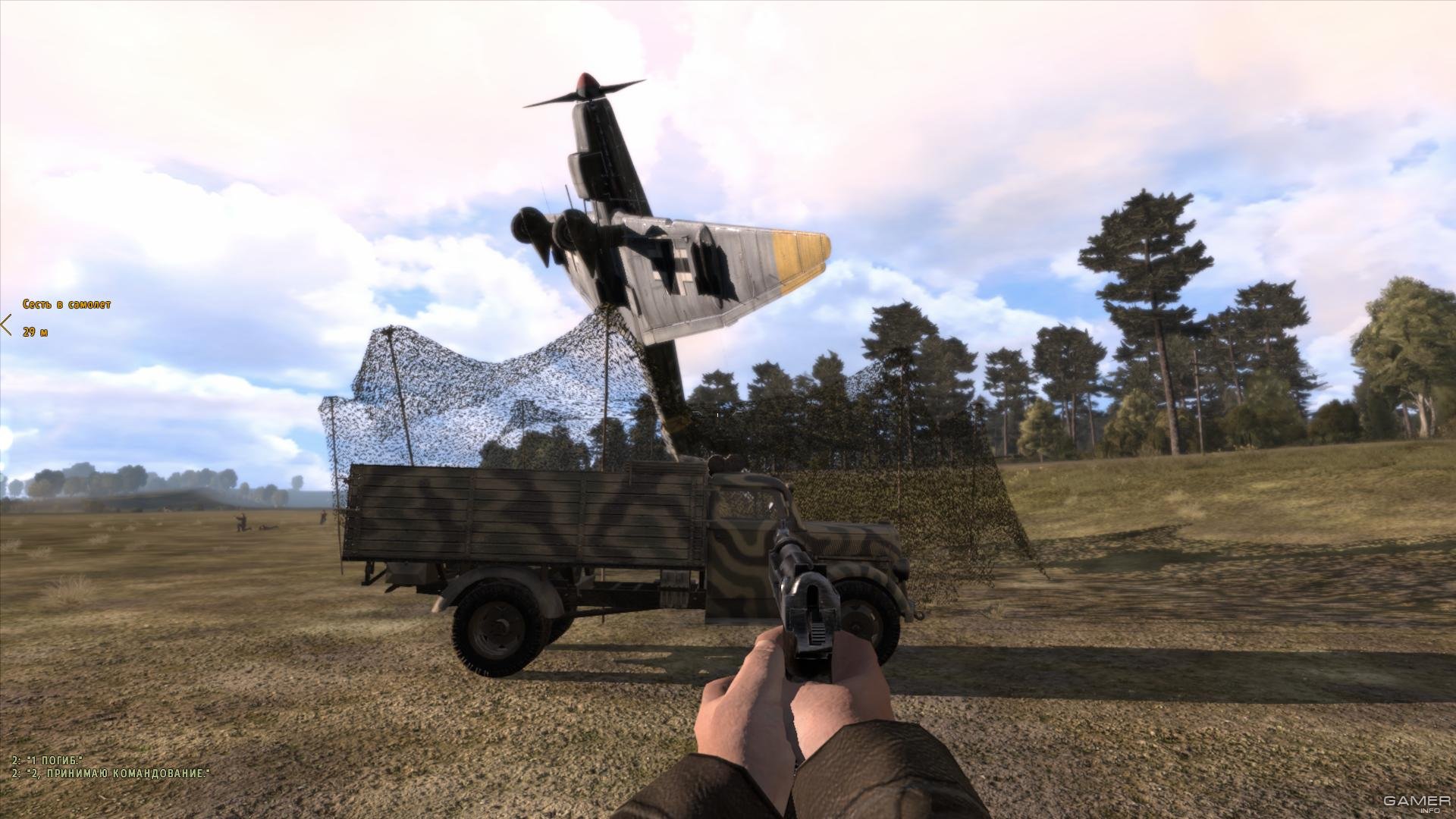


Apart from the occasional stultifying cutscene in which you listen to a narrator read text that's already visible onscreen, most dialogue in the game is AI-generated radio babble that comes so fast and furious, and is so poorly tracked on your heads-up display, that it may as well be a TV left on in the background. The thing is, regardless of the language you choose, you won't care what anyone is saying. To its credit, the game offers dialogue in both German and Russian (subtitled) or in horribly dubbed English, if reading isn't your bag. The ground portions do feel somewhat realistic (at least in the sense that you can die and kill instantly), but the opaque control system makes flying a plane cumbersome and inorganic. Iron Front: Liberation 1944 is highly ambitious in scope, but ends up trying to do way too much.

Sniping, stealth, huge frontal assaults: everything’s included. You start off as a simple soldier, but ultimately you can do everything from manning heavy weapons to commanding tanks to flying fighter aircraft. There's a thick coating of realism, alongside a kitchen sink full of possibilities. Gameplay lands somewhere between ARMA and Battlefield 1942. It's an enticing premise for those who have imagined the life of a foot soldier in the ranks of two of the world’s most ruthless dictatorships. Iron Front starts with a solid historical basis, at least: you play either as a German or a Soviet soldier in the middle of a campaign to win the Eastern Front in World War II. If standing around listening to random Nazis speak German draws you in, Iron Front has you covered. As fate would have it, Iron Front also fails at not crashing constantly, not looking like its graphics were drawn by a teenager, and at being any fun at all. It's a delicate balance, and one that Iron Front: Liberation 1944 utterly fails at. A veneer of authenticity can make for a more emotionally charged experience, but to pull this off, a game needs to hide the inevitable lack of realism that's at the core of first-person shooter gameplay. It's good to feel that what you're doing has some connection to the real thing, especially when historical settings are involved, but it isn't fun to spend half your game time field-stripping rifles and doing KP.

Realism in shooters is something the computer game industry has both striven for and struggled with for some time.


 0 kommentar(er)
0 kommentar(er)
